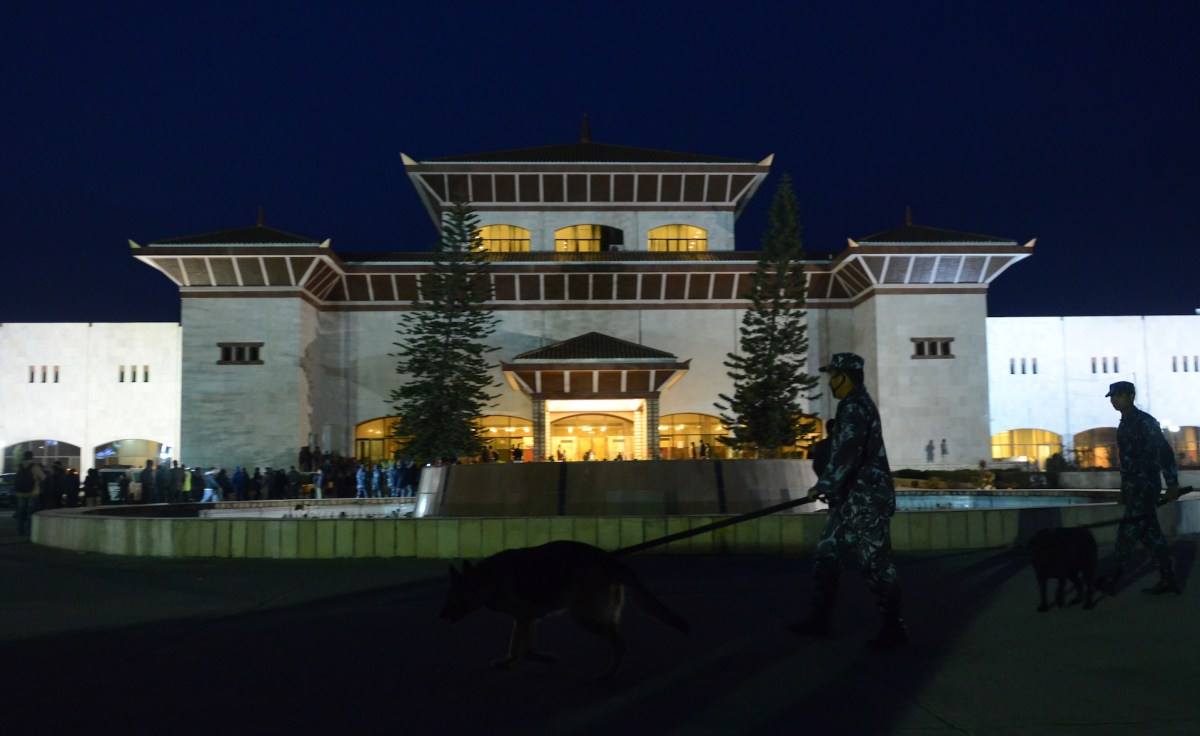“`html
Nepal Blocks Major Social Media Platforms Over Registration Non-Compliance
Nepal has recently imposed restrictions on access to several prominent social media platforms, including Facebook, Instagram, YouTube, and X, following the companies’ failure to comply with local registration requirements. This decision has sparked criticism from media rights groups and raised significant concerns regarding censorship and the freedom of expression within the country.
On Thursday, the Ministry of Communication and Information Technology of Nepal directed the Nepal Telecommunications Authority to instruct internet service providers to block access to 26 specific social media platforms. This directive was the result of a meeting held earlier that day, reflecting the government’s increasing scrutiny of foreign digital platforms operating within its borders.
According to data from the Nepal Telecommunications Authority, the country boasts an internet penetration rate exceeding 90%. Among social media users, Facebook is the most widely used platform, with 87% of users engaging with it. Other platforms like X and YouTube follow with 6% and 5% usage, respectively, as reported by web analytics firm Statcounter. The affected platforms encompass a wide range of services, including:
- Discord
- Messenger
- Snapchat
- YouTube
- X
This latest move follows a directive issued on August 25, which mandated foreign social media companies to register their operations in Nepal and appoint a local contact person within a tight deadline of just seven days. The government’s decision has been met with fierce criticism from various media advocacy groups and civil society organizations. The Committee to Protect Journalists, a New York-based nonprofit, expressed that such actions would significantly hinder journalists’ ability to work and restrict people’s access to vital news and information.
The Federation of Nepali Journalists has also condemned the government’s actions, stating that they undermine press freedom and citizens’ rights to information. This decision comes in the wake of a Supreme Court ruling that upheld the government’s local registration requirement, which was claimed to be aimed at curbing misinformation. However, the court did not mandate the government to ban platforms that failed to register, instead directing officials to create appropriate legal arrangements.
Interestingly, not all social media platforms are affected by this order. TikTok and Russia’s Viber have managed to comply with the registration requirements, allowing them to continue operating without restrictions. In a statement to the press, Communications and Information Technology Minister Prithvi Subba Gurung indicated that the government had provided ample time for platforms to register and had made repeated requests for compliance, including direct communications with Meta.
Access to these platforms will be restored once they complete the registration process, as indicated in a public notice issued by the Ministry of Communication and Information Technology. However, the implications of this decision have raised alarms among digital rights advocates. Raman Jit Singh Chima, Asia Pacific Policy Director and Global Cybersecurity Lead at Access Now, voiced deep concerns regarding the implications of this decision. He compared Nepal’s actions to the censorship architecture seen in China’s Great Firewall, which is widely regarded as a model of digital authoritarianism.
Chima noted that such measures contradict Nepal’s democratic aspirations and constitutional guarantees. He further argued that the Nepalese government should publish all blocking orders, restore access to the affected platforms, and transition to a legislative process that enshrines due process, transparency, and meaningful consultation with stakeholders. He warned that without clear appeals or independent oversight, the government’s directive grants it sweeping powers to suspend services, order content removals, and appoint local ‘grievance’ and ‘self-regulation’ officers within companies, potentially leading to over-blocking and undue pressure on these companies.
This latest development follows a wave of public backlash earlier this year against a proposed social media bill currently pending approval. The bill includes provisions for imprisonment and fines for posts deemed to undermine national sovereignty or interest. Critics, including the International Federation of Journalists, have expressed concerns that such legislation poses a severe threat to press freedom and digital expression in Nepal.
In response to the initial criticisms of the proposed legislation, Minister Gurung asserted that the government does not intend to curtail freedom of expression. However, the bill also empowers the government to mandate social media platforms to remove specific posts, with noncompliance potentially resulting in fines. This raises serious questions about the balance between national security and individual rights, particularly in a country where social media has become a crucial tool for communication and activism.
The situation remains fluid, and it is expected that further developments will unfold as stakeholders continue to navigate the complex landscape of digital regulation and freedom of expression in Nepal. The implications of these actions extend beyond the immediate access to social media platforms; they reflect a broader trend of increasing government control over digital spaces in many countries, where the line between regulation and censorship becomes increasingly blurred.
As the landscape of digital media continues to evolve, it is imperative for governments to strike a balance that protects citizens’ rights while ensuring accountability for online content. The international community, along with local civil society organizations, will be watching closely to see how this situation develops and what it means for the future of digital expression in Nepal.
“`




